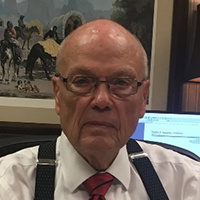Wilsey Felony Lawyer, Kansas
Not enough matches for Wilsey Felony lawyer.
Below are all Wilsey Criminal lawyers.
John Wallace Thurston
Lawyer John W. Thurston is an experienced Northeast Kansas DUI defense lawyer who has successfully completed extensive training that puts him in a uni... (more)
Stanley R. Ausemus
✓ VERIFIEDHere at the law offices of Stanley R. Ausemus, Chartered, my mission is to provide quality legal support and counsel to my clients. I have a reputatio... (more)
Bentson R. Oleen
✓ VERIFIEDIf you need an attorney that will always protect your best interests, call the Oleen Law Firm today. The Oleen Law Firm is committed to defending our ... (more)
Thomas Dean Addair
Thomas Addair graduated from Manhattan High School and Kansas State University. He attended law school at the University of Kansas. This is where Tom ... (more)
Thomas C. McDowell
✓ VERIFIED"Putting Children First"No matter what your needs, if they involve children, young and old alike, we are here to serve you. From adoptions and guardia... (more)







